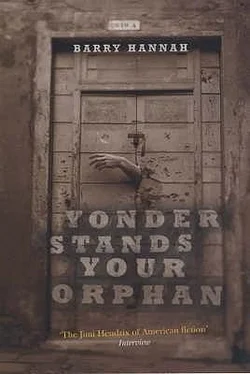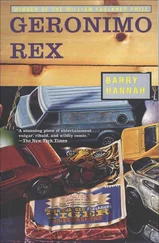Mortimer relaxed. “You see I’m not a black man now. You must be pretty fresh on the force.” The car might look ill-gotten around here unless you were a plastic surgeon or an antique queer, but Mortimer was part of the fabric here. They were lucky he didn’t move off from them, not even after that tornado came close to one of his houses and tore the third one to pieces. You got forty thousand employed by the casinos in this state, sure, but you got at least forty thousand wrecked lives to go along with them. More. You got Cash for Your Title civilization, you got pawnshop villages. Me, how many lives have been wrecked? Twelve. Maybe thirteen or fifteen, tops. I even brought Edie back from Valiums. You got me who got stabbed in the wang from loving a woman .
Big Lloyd and Edie were on a mattress in the rear and had stopped eating each other briefly while the patrolman talked. Mortimer had been driving them and watching in the overlarge rearview mirror above the dash. For his personal entertainment. Personal was your operative word here. My country ’tis of me .
“Mr. Mortimer. Do you have farming land in Sharkey or Issaquena County?”
“Farmland? Would that be a high crime?”
“No. I just thought you might know some of my folks.”
Mortimer could not believe this fool.
“No, I don’t know farm people. I’m driving on your soil, your folks’ soil?”
“None of my folks talks like you.”
“Are you saying I got stopped for talking?”
“Sir. You know, you look like Conway Twitty. A good man, I hear.”
“Except he’s dead, Officer, sir.”
“Yes. But they say things about the King too.”
“My aching.” The license came back to him through the little slit of window.
“The Kang. What if I called your boss?”
“The sheriff? The High Sheriff?”
“Yes, Deputy. The sheriff.”
“Well, I’d just say I had probable cause. But I’m not ticketing you this time.”
Mortimer said nothing until the deputy had driven away. “I have a life. Shoot me.”
The deputy told the sheriff privately in the office who he had stopped and why, and how sassy the man was. The sheriff seemed unimpressed. Mortimer had no record. Then the deputy described their nasty conversation.
“He didn’t really miss the stop sign, did he?”
“Sort of.”
“No. You stopped him because it was a black Lexus SUV and you’d never seen the inside of one, or you thought you had a dope-hauling African-American sort of dude, or a casino entertainer. No?”
The sheriff threw himself on his knees in front of the deputy. The deputy had seen a minor version of this theater offered to others but never had he come in the way of it himself.
“God, please save me from Boy Scouts.” Facetto put his hands together in worship.
The deputy was astonished, sick with embarrassment. He worshiped this sheriff. “Sir?”
“Yes, Lord Deputy?”
“Do you know any Conway Twitty songs?”
“Your life began about the last season of the eight-track tape, Bernardo. ‘You’re standing on a bridge that just won’t burn’?”
“I’m what?”
“One of his tunes, Bernardo.”
“Yes sir.”
“Get rhythm, son. I beg you.”
“Aw.”
“Or just read a book.”
“Yes sir. Could you please get off your knees?”
“But I love thee, Lord Bernardo.”
“Personnel are gathered at the window.”
“Get the book, Bernard. Look up the difference between deputy and rubbernecking fool .”
The sheriff got dreamy. “I seen this movie the other night, deputy old son.”
“You don’t talk like that, Sheriff.”
“No. But a priest in it knew karate against zombies. He said, ‘I’m kicking ass for the Lord.’ Is that what you’re doing, or is that what I’m doing?”
“You’re embarrassing me, sir.”
“Now get out there and troll amongst those sullen crackers along the roads. They’re used to talking to their own dicks and staring offwards, looking for cars. I implore you, Bernard. Don’t just be hitting on strange cars.”
Those gathered at the window felt much more for the young deputy than they did for the sheriff. The murmurs had been going. The histrionics, the Norton, the fact he might be gay, the lack of hate, the little zeal he showed for his gun.
Hare and Sponce were not doing well. Sat on either end of the porch in ragged lounge chairs and reclined, with the radio tuned out and in on the tape box and orange Gatorade in a cold thermos next to each, brought and refilled by Dee when she was home. After three days she had had to go back to work, but she had no dates and this was sweet to them both. They did not eat. They were drawn, pale, whimpering, like things called by Legba. They expected the virus to pass each day listening to a radio song about rum and the sea. The health in the song was miserable to them.
They were some better, then not. They marveled at the disease. It had its own dreams. Big violent birds and prehistoric sauria. A man with an enormous head who searched for a hat and killed many. Hats or people. Johnny Cash in Vietnam. Neither was alive at the date of Cash’s appearance for the soldiers. They fell asleep at any time and went into somebody else’s story, somebody who also seemed lost and sick. They awoke to another singing about dope, seawater and dizzy sophomores. A one-note faked happiness, rhyming names to malaria . Inside, the television flamed with others talking, dying. Nobody watched. They were too weak to turn a button off and weary of listening to the bubbles of their own selves. They hung as in caves for lost days, aged hermits at twenty, twenty-one. To the bathroom if anywhere. Wet feet on tile.
Isaac and Jacob came out of a culvert they could almost stand in and walked into the yard. The grass was thick and good in large parts of the yard. Zoysia. Sponce saw them and imagined the culvert ran back miles into the woods. The boys wore clean tank tops, coral and blue. Sponce thought they had been in the culvert for hours, maybe days. He wondered vaguely why Isaac’s shoulder was bandaged. If it was the monster from his dream they had been fighting.
One of them went up to the radio and tuned out the fuzz.
“Where you been?”
“What’s wrong with you?”
“We been sick, Isaac. You don’t wanna know.”
“Where’s Mama?”
“At work. She about to quit. Some old lady is asking her sexual advice. They think Mama smashed up some animal glasses or like. They think our mother did that.”
“How can she quit?” Isaac said.
“She’s got Daddy and them men supportin’ her.”
“She needs taking care of anyway,” Hare put in. “Her health is important.”
“Her job’s the part of her isn’t nobody else’s,” said Jacob. “She can’t quit.”
“You want more money for her staying on?” asked Hare.
“I never thought the least about money.”
“She heard what you been up to. Hare lied and told her all y’all had was dummy zombies. Where are they?” Sponce demanded.
“Sitting in their own peace.”
“You a wart.”
“None of that’s the point,” Hare said. “The point is you were somewheres like two stray dogs. Off. Else I dreamt it.”
“You get well and fix up that car, Hare. Or we might go to the sheriff and stand back and wait for the reward. That was a car like songs are written about, and we goin’ to have it in red and a gold hood. Or else I’m gonna tell Mama alls you want is your weenie in her.”
“Mama doesn’t need that anymore,” Sponce snapped. “You shut off your pie hole, wart.”
“Here’s a story,” said Jacob the skinnier, taller. “These people is our ticket unless that car gets done. It might be some old rich man in Missouri missin’ his wife and child all this time. He’d be laying on his deathbed cryin’, and all this money and it never been no happiness since they were stolen. He misses the car too. Then you see us on television and him light up. And we would be friends, we wouldn’t need no daddy or dating men ever again. He wouldn’t let none of us six need nothing again, aside from the reward. We’d have a new house on a brand-new lake. If not a ocean.”
Читать дальше











